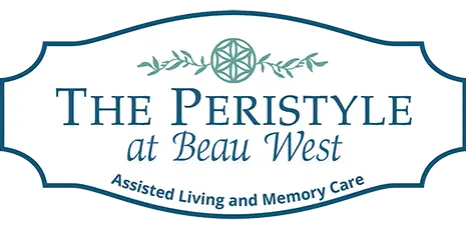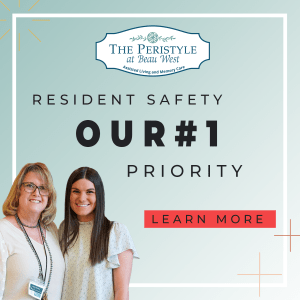Does the following situation sound familiar? Your elderly loved one begins to exhibit odd behaviors uncharacteristic of their personality. First, they don’t remember small things like where they put the car keys, but then they start forgetting appointments and mismanaging their schedule. Eventually, they have trouble recalling past events and perhaps act more irritable than usual.
The aging population is experiencing a rise in cognitive decline at an alarming rate, and conditions such as dementia and Alzheimer’s disease are becoming more prevalent. However, not all memory loss results from the same condition nor displays the same symptoms. The following article will discuss the causes of memory loss, covering various conditions such as Alzheimer’s disease, dementia, and aphasia. We will also cover reversible forms of memory loss, such as medication mismanagement, emotional disorders, and sleep deprivation.
If your elderly loved one requires assisted living or memory care in New Orleans, please contact Peristyle Beau West for a free tour of our wonderful community. All of our caregivers are trained, background-checked, and screened for the safety of our residents. We are locally owned and operated on the Northshore in Mandeville, Louisiana.
Alzheimer’s Disease
Alzheimer’s disease is a progressive neurological disorder that affects the brain, primarily causing memory loss and cognitive decline. As the most common form of dementia, healthcare professionals do not know the exact cause of Alzheimer’s disease; however, it is believed to be a combination of genetic, lifestyle, and environmental factors.
Alzheimer’s patients typically exhibit symptoms that deteriorate over time until the disease has completely taken over their independence. The evolution of symptoms may start as small things, such as forgetting where they put the car keys or uncharacteristically mismanaging bills. As the disease worsens, patients often wander out of their residences and forget how to get home or display random acts of rage and violent behavior.
There is no cure for Alzheimer’s, making diagnosis scary and depressing for its victims and their families. In the early stages, Alzheimer’s patients can often remain at home with the care of loved ones and home care professionals. However, as the disease progresses, the safest solution is relocation to a secured memory care community with trained staff and around-the-clock support.
Dementia
Often, dementia and Alzheimer’s are confused, especially by those new to the senior care industry. Dementia is an umbrella term for various brain conditions in cognitive decline and impairment. Alzheimer’s disease falls under the dementia umbrella, among other conditions such as vascular dementia, Lewy Body Disease, aphasia, alcohol-related dementia, HIV-associated dementia, and Chronic Traumatic Encephalopathy.
There are no known cures for most types of dementia; however, early detection and intervention can help prevent rapid progression. Dementia is also linked to poor lifestyle choices, such as obesity, diabetes, smoking, and alcoholism.
Aphasia
Aphasia is the most uncommon form of memory loss out of the three mentioned in this article. It is also a condition not widely known to the general public, although it has been gaining more attention since Bruce Willis’s diagnosis in 2022.
Aphasia affects an individual’s ability to swallow, ultimately leading to the inability to form words and sentences. Over time, the failure to express wants and needs leads to memory loss and cognitive impairment. Aphasia patients with mild brain damage can recover the ability to speak through speech and language therapy. However, Aphasia patients with severe cases typically never fully regain speech control and often suffer from permanent memory loss.
Reversible Forms of Memory Loss
Not all memory loss and cognitive impairment are permanent and untreatable among elderly patients. As reported by Lown Institute, seniors are the top age demographic for prescription intake, with more than four in ten older adults taking five or more prescription medications. Many prescription drugs lead to memory loss, including anti anxiety drugs, antiseizure drugs, painkillers, incontinence drugs, and sleeping aids. The more seniors can take care of their physical and mental health holistically, the more likely they are to minimize their prescription intake, preventing the risk of memory loss.
Emotional disorders such as depression, bipolar disorder, and schizophrenia can cause lapses in memory, especially for older adults. Chronic stress has also been linked to speeding up memory loss in patients with cognitive decline, as the National Library of Medicine reported in 2009. Helping an elderly loved one minimize their stress levels by offering to help with activities of daily living can go a long way. Also, offer to take your elderly loved one out once weekly to minimize social isolation and loneliness, a common stressor among seniors.
When we think of alcoholism, we often don’t associate the disease with seniors. However, a 2021 survey estimated that 1 in 20 adults aged 65 or older had an alcohol disorder, as reported by American Addiction Centers. Blackouts and memory loss are common symptoms of chronic drinkers. Fortunately, alcohol-related memory loss is fully reversible. Suppose you have an elderly loved one suffering from alcoholism. In that case, we recommend proactively getting them treatment immediately—many free resources to assist with addiction and alcoholism, such as Alcoholics Anonymous.
Conclusion
We hope this article is helpful in better understanding the different forms of memory loss. For more information on assisted living and memory care in New Orleans, please contact Peristyle Beau West for more details or visit our Family Resources page. Our team of expert caregivers is background checked, screened, and trained, ensuring the safety and well-being of your elderly loved one. We offer exceptional amenities and services to ensure your senior loved one feels at home and cared for.
We are excited to meet your family!






